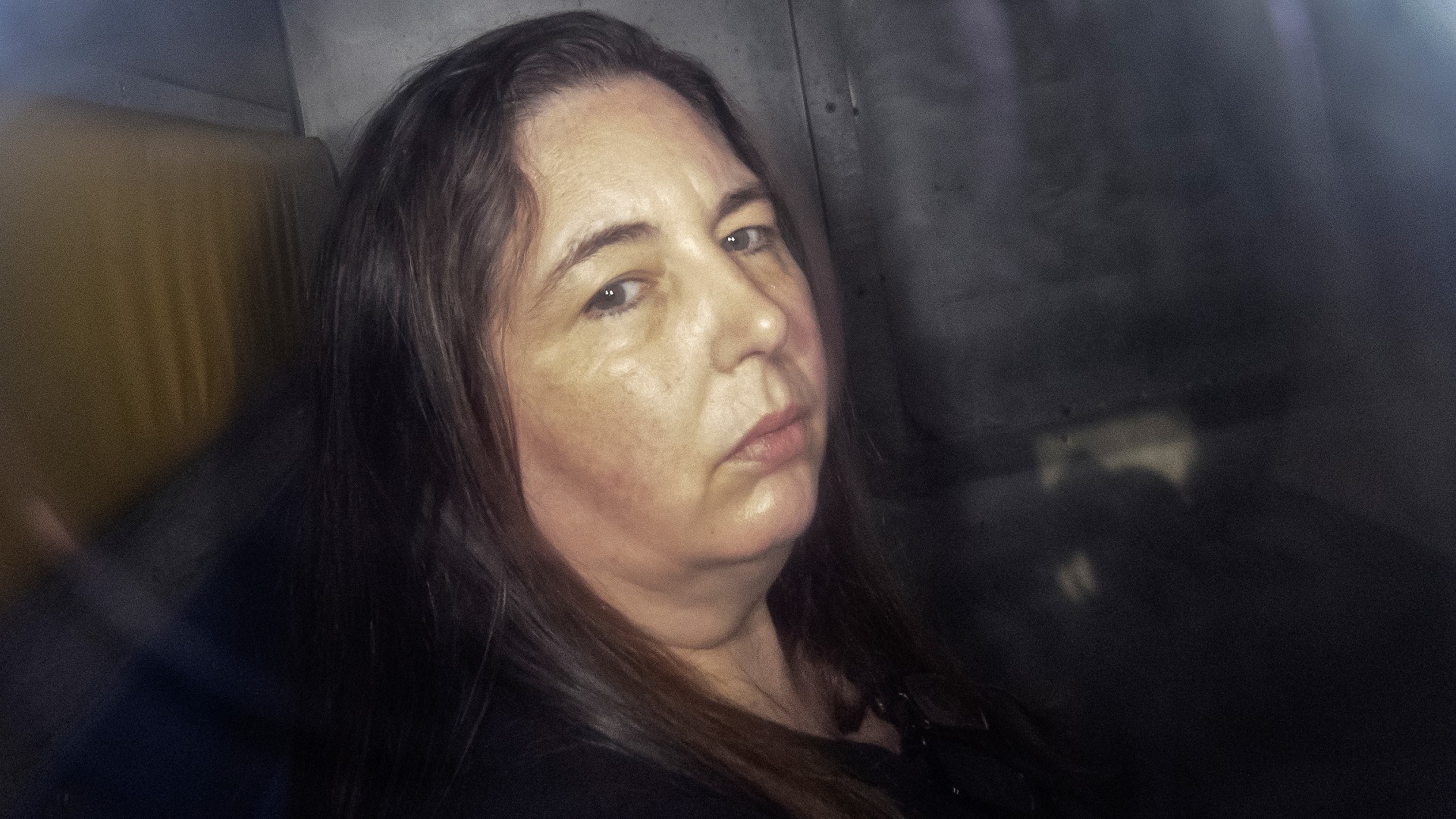Ali Harbi Ali: what are the potential motivations behind David Amess’s murder?
Police and security services said to be exploring a number of theories

A free daily email with the biggest news stories of the day – and the best features from TheWeek.com
You are now subscribed
Your newsletter sign-up was successful
Security sources investigating the murder of MP David Amess during a constituency clinic in Essex on Friday have said they are keeping an open mind about the motivation for his killing.
The political establishment was left shocked after the 69-year-old was fatally stabbed in a Methodist church in Leigh-on-Sea in his Southend West seat.
A 25-year-old suspect was arrested at the scene on suspicion of murder and later transferred to a London police station, where he was detained under the Terrorism Act. He has been named as Ali Harbi Ali, the British son a former senior Somali government official.
The Week
Escape your echo chamber. Get the facts behind the news, plus analysis from multiple perspectives.

Sign up for The Week's Free Newsletters
From our morning news briefing to a weekly Good News Newsletter, get the best of The Week delivered directly to your inbox.
From our morning news briefing to a weekly Good News Newsletter, get the best of The Week delivered directly to your inbox.
The Qatar connection
On Saturday, police said early investigations had revealed “a potential motivation linked to Islamist extremism”. But today The Times said security sources have “emphasised that all avenues were being explored as they examined the killing”.
One of these lines of enquiry, said the newspaper, is whether Amess’s ties with Qatar might be linked to his death. The Times described him as the British politician closest to the Gulf kingdom, which backs the current Somali president Mohamed Abdullahi Mohamed. The Conservative MP chaired the all-party parliamentary group on Qatar and had visited the country just last week.
“According to some observers, Somalia’s woes largely stem from the alliance Mohamed made with Doha,” said The Times’s David Rose. President Mohamed clung on to power when his four-year term was due to end in February, triggering the worst political violence the country had seen for many years.
A free daily email with the biggest news stories of the day – and the best features from TheWeek.com
Fears of Qatar’s increasing hold has provoked “a backlash from young Somalis, who express their anger on social media, too afraid to take to the streets”, he added.
MI5 ‘mystfied’
Another theory reported in The Telegraph is that Amess was not specifically targeted, but “picked at random as part of a plot to kill any national politician”.
Investigators believe Ali acted as a “lone wolf” in what they call a “low-sophistication” plot with little planning, said the paper. One source inside government told the Telegraph that Amess was simply “unlucky”.
The newspaper said this theory would appear to “scotch” claims that Amess, a devout Catholic, was selected “because of his values, views or religion”.
The Daily Mail said that MI5 was also “mystified” as to why Amess might have been singled out.
The Prevent referral
Ali is understood to have been referred to the flagship anti-extremism scheme Prevent in his “late teens”, which coincided with “a deterioration in his relationship with his Somali-born parents”, said the Mail.
However, he was “never a formal subject of interest to MI5”, said the BBC, which explained that engagement in the Prevent scheme is “voluntary and it is not a criminal sanction”.
“Teachers, members of the public, the NHS and others can refer individuals to a local panel of police, social workers and other experts who decide whether and how to intervene in their lives,” it added.
Radicalisation
Police and security services believe the motivation behind the attack may have been to “further the Islamist cause espoused by groups such as al-Qaeda, Islamic State and al-Shabab, which is active in Somalia”, said The Telegraph.
Ali does have Somali heritage, it added, but he was born in the UK, grew up in Croydon and it is not thought he had made any recent trips there.
His father, Harbi Ali Kullane, a former director of communications for the prime minister’s office in Somalia, was a victim of Islamist death threats himself, said The Telegraph. Al-Shabaab, the terror movement that still controls parts of the country, had reportedly targeted him over the hard line he took against terrorism when he lived in the country.
Kullane, who now lives in north London, told The Sunday Times that he was feeling “very traumatised” after his son was arrested. “It’s not something that I expected or even dreamt of.”
So far, Whitehall sources say there is nothing to suggest Ali had extensive contact with terror groups abroad, said The Independent. But detectives are thought to be looking at the possibility that he “may have been ‘self-radicalised’ online by material found on the internet and social media networks during lockdown”.
-
 6 of the world’s most accessible destinations
6 of the world’s most accessible destinationsThe Week Recommends Experience all of Berlin, Singapore and Sydney
-
 How the FCC’s ‘equal time’ rule works
How the FCC’s ‘equal time’ rule worksIn the Spotlight The law is at the heart of the Colbert-CBS conflict
-
 What is the endgame in the DHS shutdown?
What is the endgame in the DHS shutdown?Today’s Big Question Democrats want to rein in ICE’s immigration crackdown
-
 Ex-Illinois deputy gets 20 years for Massey murder
Ex-Illinois deputy gets 20 years for Massey murderSpeed Read Sean Grayson was sentenced for the 2024 killing of Sonya Massey
-
 Why have homicide rates reportedly plummeted in the last year?
Why have homicide rates reportedly plummeted in the last year?Today’s Big Question There could be more to the story than politics
-
 How the Bondi massacre unfolded
How the Bondi massacre unfoldedIn Depth Deadly terrorist attack during Hanukkah celebration in Sydney prompts review of Australia’s gun control laws and reckoning over global rise in antisemitism
-
 Australian woman found guilty of mushroom murders
Australian woman found guilty of mushroom murdersspeed read Erin Patterson murdered three of her ex-husband's relatives by serving them toxic death cap mushrooms
-
 Crime: Why murder rates are plummeting
Crime: Why murder rates are plummetingFeature Despite public fears, murder rates have dropped nationwide for the third year in a row
-
 The missed opportunities to save Sara Sharif
The missed opportunities to save Sara SharifTalking Point After each horrific child abuse case, we hear that lessons will be learnt. What is still missing?
-
 Haitian gangs massacre hundreds accused of 'witchcraft'
Haitian gangs massacre hundreds accused of 'witchcraft'Under the Radar Vodou practices blamed for gang leader's son's illness, as elderly are hacked to death in Port au Prince
-
 Penny acquitted in NYC subway choking death
Penny acquitted in NYC subway choking deathSpeed Read Daniel Penny was found not guilty of homicide in the 2023 choking death of Jordan Neely